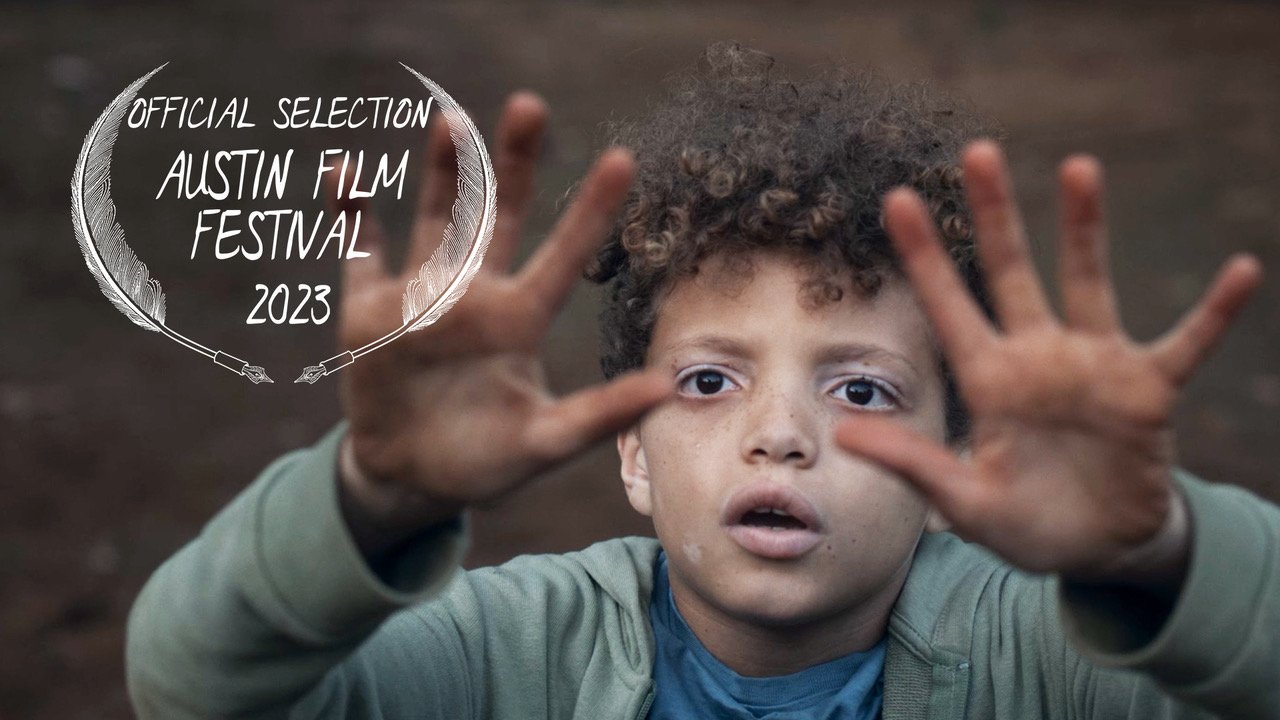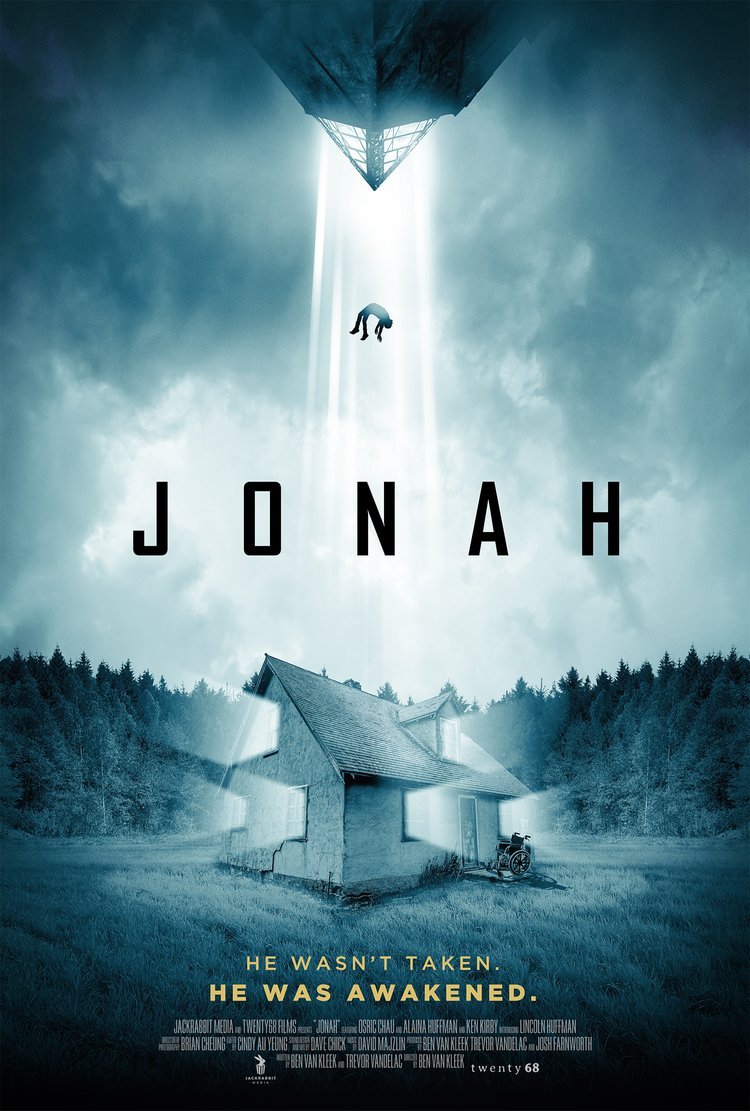AFF 2023 Correspondence: The Jonah Review
Writer’s note: Howdy doody, everybody! It’s one of your favorite Hyperreal Correspondents rambling at you again with their musings of yet another festival that’s coming through Austin, Texas. This one is the 2023 edition of the Austin Film Festival. Day 1 began with a quick dash to the registration table at the Omni Hotel during a bout of rain, followed by two evening screenings at the Galaxy Theater north of Austin. In the spirit of the just passed Fantastic Fest from a month or so ago, Austin has decided to host some sticky and sweaty nights once again. Pray for my pants.
As this is another festival I’m getting to attend for the first time ever, I’ve got to give the usual shouts to all the wonderful people who make this week’s events and coverage happen! Shoutout as always to Hyperreal Film Club, the writers who populate it, and the editors who help the writers all sound amazing! I more or less just threw a dart at a board to pick which film’s I’ll be seeing at this fest, but I’m sure each one will come with its own fair share of surprises. As always, hope y’all enjoy the reviews I’ll be spewing out here in the next few days!
Is the truth always important? For every mystery out there, does each one have its own captivating reveal? Should it?
One of the recurring mysteries of life is the question of whether it exists beyond our planet. If so, what does it look like? What does it sound like? Taste like? The questions can go on and on and on. They’re ones that’ve found a home in the realm of movies. After all, what better way to tackle this question’s mysteries and potential answers than through the power of limitless imagination found on the screen? The first film on my slate, during my stint covering the Austin Film Festival, begins with Jonah, a movie that tries to tackle the mystery and meaning behind the idea of life beyond our planet.
Writer and director Ben Van Kleek (along with co-writer Trevor Vandelac) open their story with single mother Margot (Alaina Huffman) witnessing the abduction of her young son, Jonah (Lincoln Huffman, who is Alaina’s real-life son). From what Van Kleek shows in these beginning moments, to our and to Margot’s eyes, the abduction is real: Bright white lights that shine over their lonesome property blind us and Margot as her son is seemingly snatched from her. However, once we move past the introduction we meet the film’s protagonist, Ozzie (Osric Chau), a journalist who specifically interviews people labeled as “kooks” or “crazies.” Armed with the usual sense of cynicism found in almost every other movie journalist main character, Osric and his partner Darren (Ken Kirby) find themselves assigned to the case of Margot, looking to see if what she (and the audience) saw was real or a case of a woman going crazy.
Where the tension of this question should burn bright for the rest of the film, Van Kleek and Vandelac’s story gets lost in throwing out the cliches of the sub-genre it inhabits. For a moment, the film sets up an interesting pivot when we soon find out that Jonah is still home, but nonetheless, paralyzed below the waist and talking strangely. However, the dialogue Jonah monotones out is the usual “beware of the end days” banter we’ve seen in other films that deal with supposed prophets of doom. To be fair to the young Huffman in his first starring role, he seems to understand the direction that Van Kleek is giving him. It’s just that the direction doesn’t do a lot of interesting things with what should be an interesting character.
The adults fare a bit better, but they also have to contend with characters that are either one-note, like Kirby’s lighthearted but same-old same-old bro-best-friend, or thrown through jarring developments, such as Ms. Huffman’s beleaguered mother character. Huffman, to her credit, does a fine job of getting across the near resignation of her character, with Margot coming across as a solitary mother faced with trying (and failing) to protect the one thing she loves. Where Jonah loses Margot is in its final act, which pushes her into an antagonistic space that doesn’t feel that earned. Mr. Chau’s Ozzie should, in theory, be another character that’s emotionally investing for the audience. However, the writing for Ozzie opts to take the character down some usual paths. For one, the writers slowly reveal that Ozzie has his own share of trauma from his past, a detail mainly used to try and form a sort of connection between him and the mysterious child he’s researching. However, once we find out what Ozzie’s been hiding, the reveal hardly lands any sort of emotional weight, instead feeling like a checkmark for the storytellers to fully connect Jonah and Ozzie’s characters. Taken as a whole, Ozzie’s journey follows that usual path of “skeptic turned believer” we’ve seen in other movies where someone investigates fantastical mysteries. There are the scenes where Ozzie can barely wait to tell his journalism partners how crazy Margot and Jonah seem, followed by the eventual turn towards believing in the people he has just disowned.
Van Kleek and Vandelac certainly have a bunch of intriguing and emotionally loaded ideas on the table. The question of “do aliens exist?” is always going to keep an audience’s attention. The same for the idea of a mother doing whatever she can to protect her son. Hell, even the idea of two dudes exposing crackpots around the country holds weight in a vacuum. They just can’t naturally cram together in this 90-minute movie. The answers to some of the questions Van Kleek and Vandelac pose hardly bring out much suspense or awe. They simply happen. By the time the movie enters a final scene filled with emotion, blood, and pretty solid special effects, the release of its buildup results in an earthly “Oh, okay.”
For the story they’ve made in Jonah, Van Kleek and Vandelac certainly have an idea of the truths out there in this crazy, violent world. As it happens here, and as it happens in real life, sometimes the truth is out there… it just turns out that sometimes the truth may not always be as exciting as you hope it would be.



Hailing from Dallas, Texas, Justin Norris lives and breathes for one thing: movies. When not constantly telling people he’s “working” on a script, film review, or novel, he’s actually really trying to work on those things, guys, just trust him! Anyway, he’s also into casual reading, being an intense New York Jets fan, playing pickup basketball, and of course, catching a flick at the local theater.
To get more personal, follow the jabroni at:
Twitter: @DaRealZamboni
Instagram: justinnorris12
Letterboxd: DaRealZamboni
Medium: https://medium.com/@justinnorris12